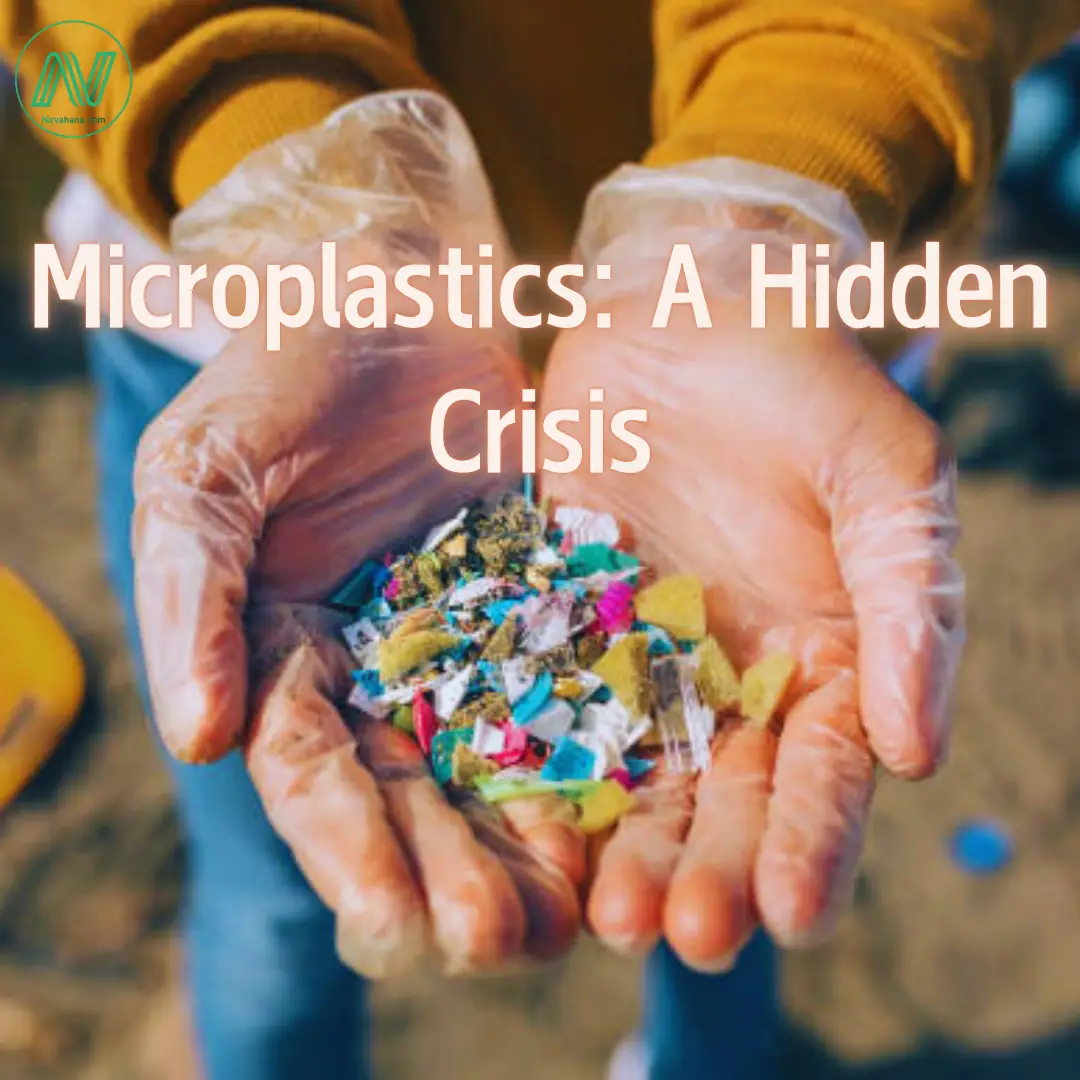In recent years, microplastics have become a growing concern across the globe. They have infiltrated the Earth’s ecosystem, threatening human bodies and biodiversity. They are tiny plastic particles, either intentionally manufactured for cosmetics, detergents, medicines and much more or they are broken down from larger plastics over time. These particles are so small, nearly 5mm size, they float in the air we breathe, the food we eat, the water we drink and are present in the ocean, soil etc. [1]
Microplastics have adverse effects on the ecosystem, especially aquatic life. They enter the ocean due to improper waste disposal and industrial activities, eventually finding their way into marine life. These particles are consumed by plankton, which are the base of the food chain. As a result, it impacts the species living in the water and accumulates in their body causing harm to their reproductive system and liver. This contamination disrupts the food chain and reduces biodiversity and eventually poses a threat to humans who consume seafood. [2]
Microplastics alter soil quality, reducing its fertility and which in turn affects agricultural productivity. It is harder to grow crops as contaminated soil struggles in retaining water and nutrients from the soil. Furthermore, wildlife animals who consume plastic waste suffer from multiple health problems. According to different studies, many animals develop tumors due to plastic consumption. Additionally, microplastics attach themselves to airborne particles, increasing lung inflammation and causing other respiratory issues. [3]
The harmful effects on microplastics don’t stop here, they pose a significant threat to human health as well. Recent studies have discovered microplastics in human blood, lungs, kidney, saliva, breast milk and even in the placentas of unborn babies. [4] This raises concerns about the long-term consequences of such exposure. Even at the earlier stages of life, humans are exposed to them, which can slow down their growth and development. These particles carry harmful chemicals which can affect our immunity, disrupt hormones and can lead to chronic health diseases in the future. [5]
To minimise the risks posed by microplastics, we have to take action to mitigate this problem. Reducing the use of plastics and better waste management solutions are essential. Government has taken initiatives by prohibiting the use of plastic bags, which have low utility and high littering potential. Also, further steps have been taken for better plastic waste management which includes stricter rules on plastic production and raising awareness about the dangers of plastic pollution. [6] On an individual level, we should adopt more eco-friendly and sustainable alternatives to reduce plastic consumption.
The presence of microplastics in every corner of Earth serves as a reminder of unchecked plastic pollution and poor waste management practices. These invisible pollutants pose risk to the environment and all living beings. At Nirvahana, we are committed to sustainable practices and innovative solutions for a greener future. Nirvahana empowers businesses and communities to adopt environmentally friendly practices. Together, let’s take proactive steps for a cleaner, greener future. Learn more about sustainable waste management solutions and more climate and health related content by subscribing to our blog on Nirvahana.com.
References:
- National Ocean Service What are Microplastics?.
- National Geographic. Microplastics are in our body. How much do they harm us?
- Nature. Increase of wildlife cancer: an echo of plastic pollution?
- The Guardian. Microplastics revealed in the placentas of unborn babies.
- Harvard Magazine. Microplastics Everywhere.
- Ministry of Environment, Forest and Climate Change. Compulsory ban on polythene bags.




